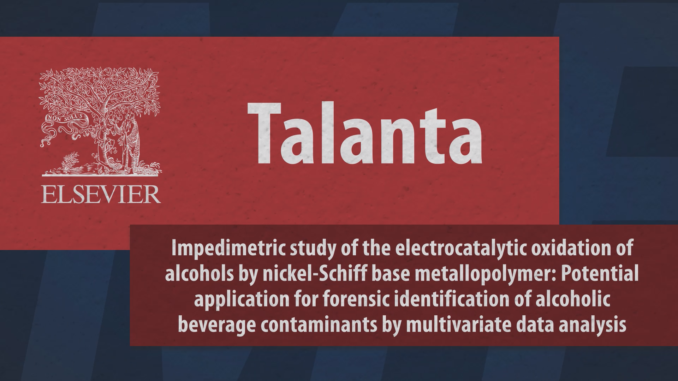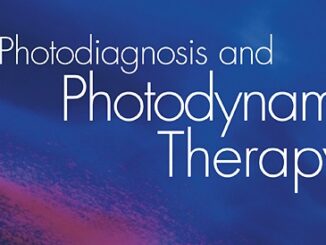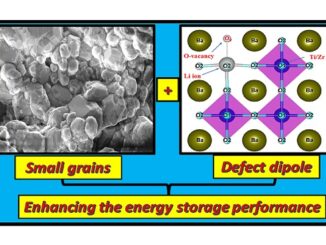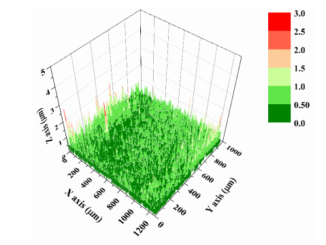
Impedimetric study of the electrocatalytic oxidation of alcohols by nickel-Schiff base metallopolymer: Potential application for forensic identification of alcoholic beverage contaminants by multivariate data analysis
Abstract: The present paper presents a systematic electrochemical impedance study on the electrooxidation of methanol, ethanol, 1-propanol, ethylene glycol and glycerol by a sensor based on nickel-salen metallopolymer. As a second step, the application simulated the device in the identification of contamination in alcoholic beverages by principal component analysis (PCA). By studying electrochemical impedance, we verified that the reactivity of alcohols on the device is directly related to pKa values and polarity index. By multivariate analysis, it was possible to set up a system that differentiates the types of alcohol with impedimetric variables. The identification distance between the groups allowed the differentiation of mixed samples from the groups containing ethanol-methanol and ethanol-ethylene glycol.
Author(s): Olean-Oliveira, A.; Trevizan, H. F.; Cardoso, C. X.; Teixeira, M. F. S.
Talanta
Published: 1 February 2023, Volume 253, 124029
DOI: https://doi.org/10.1016/j.talanta.2022.124029
CDMF
The CDMF, hosted at the Federal University of São Carlos (UFSCar), is one of the Research, Innovation and Dissemination Centers (RIDC) supported by the São Paulo State Research Support Foundation (Fapesp), and also receives investment from the National Council Scientific and Technological Development (CNPq), from the National Institute of Science and Technology of Materials in Nanotechnology (INCTMN).




